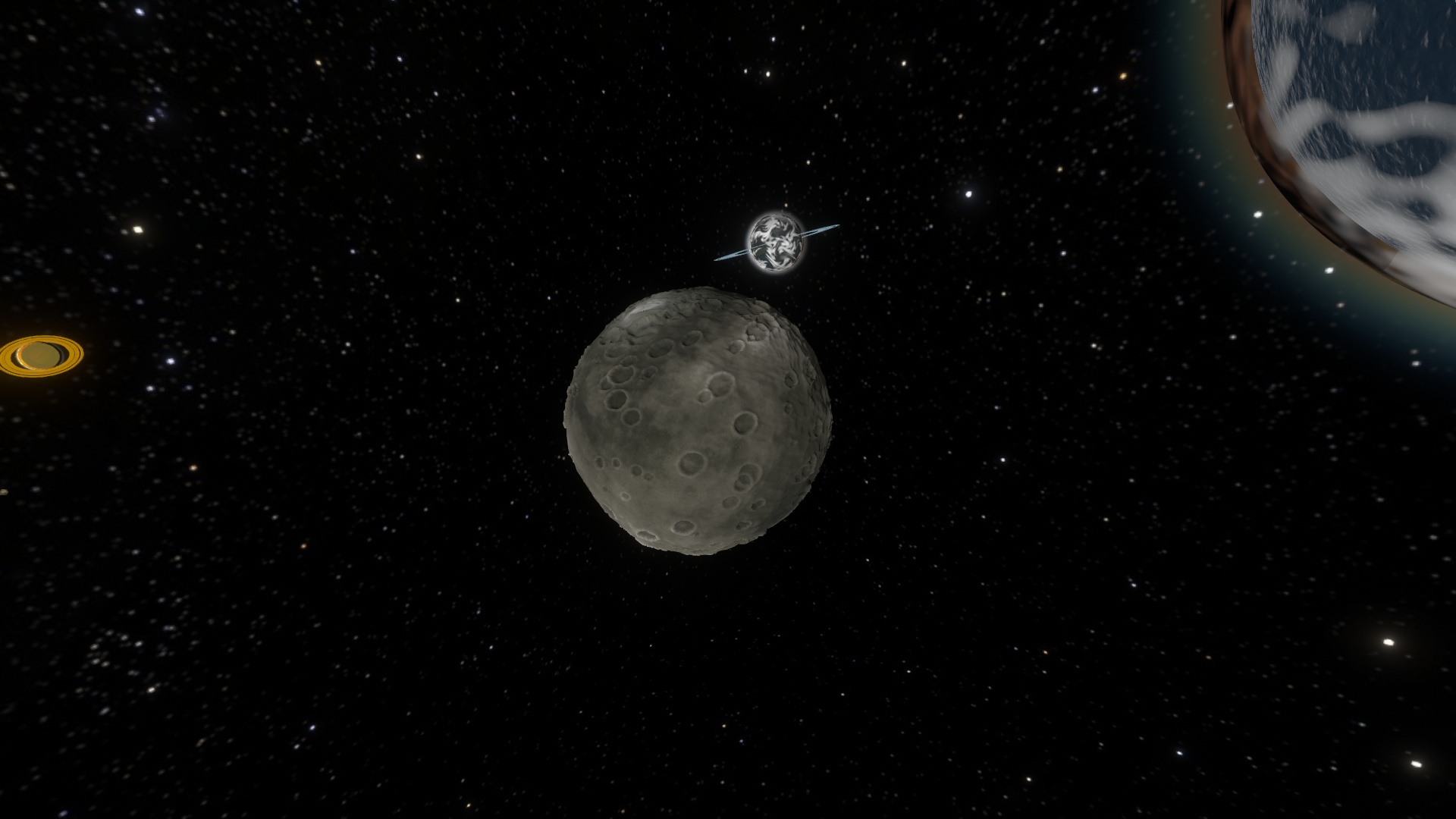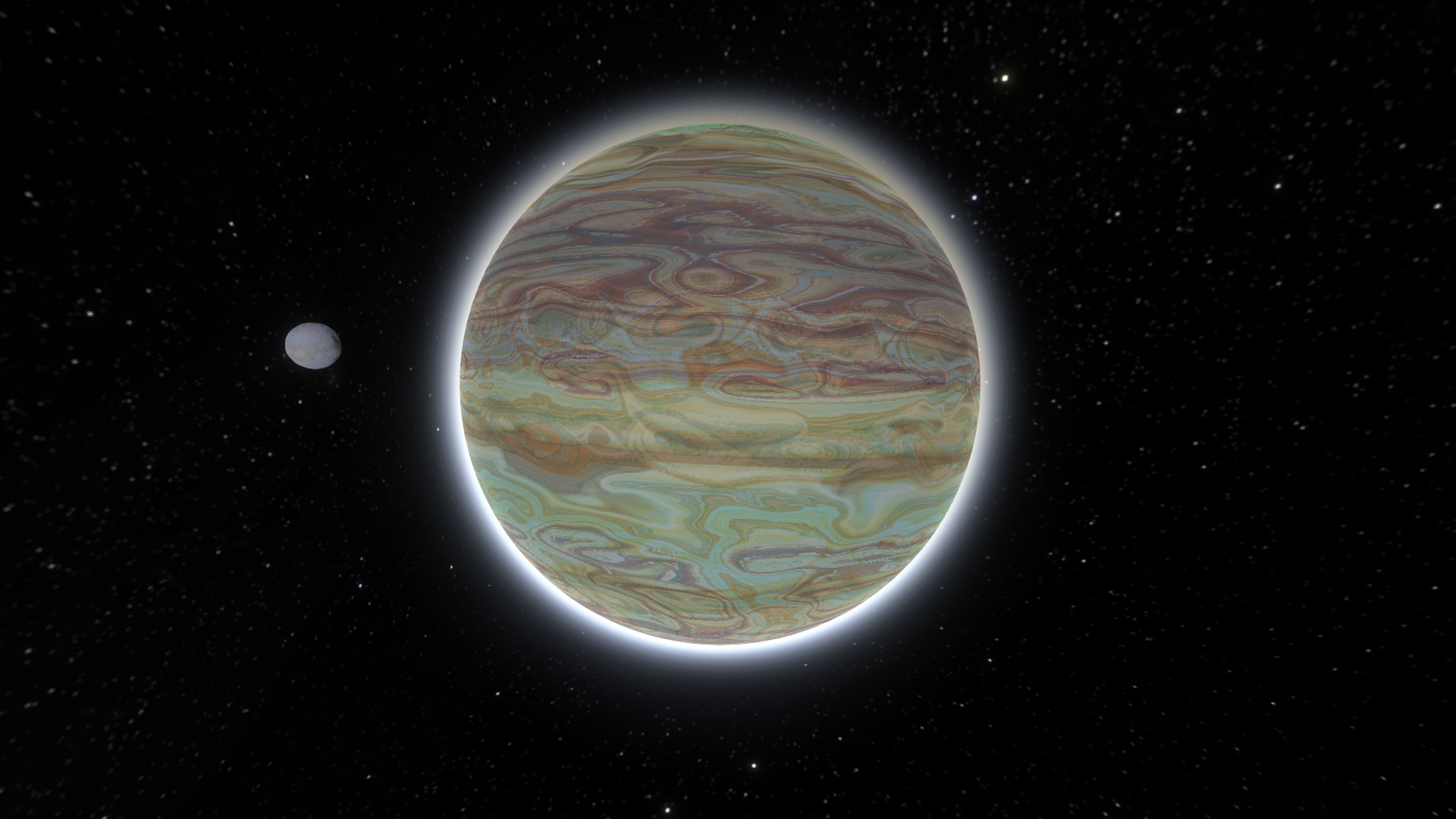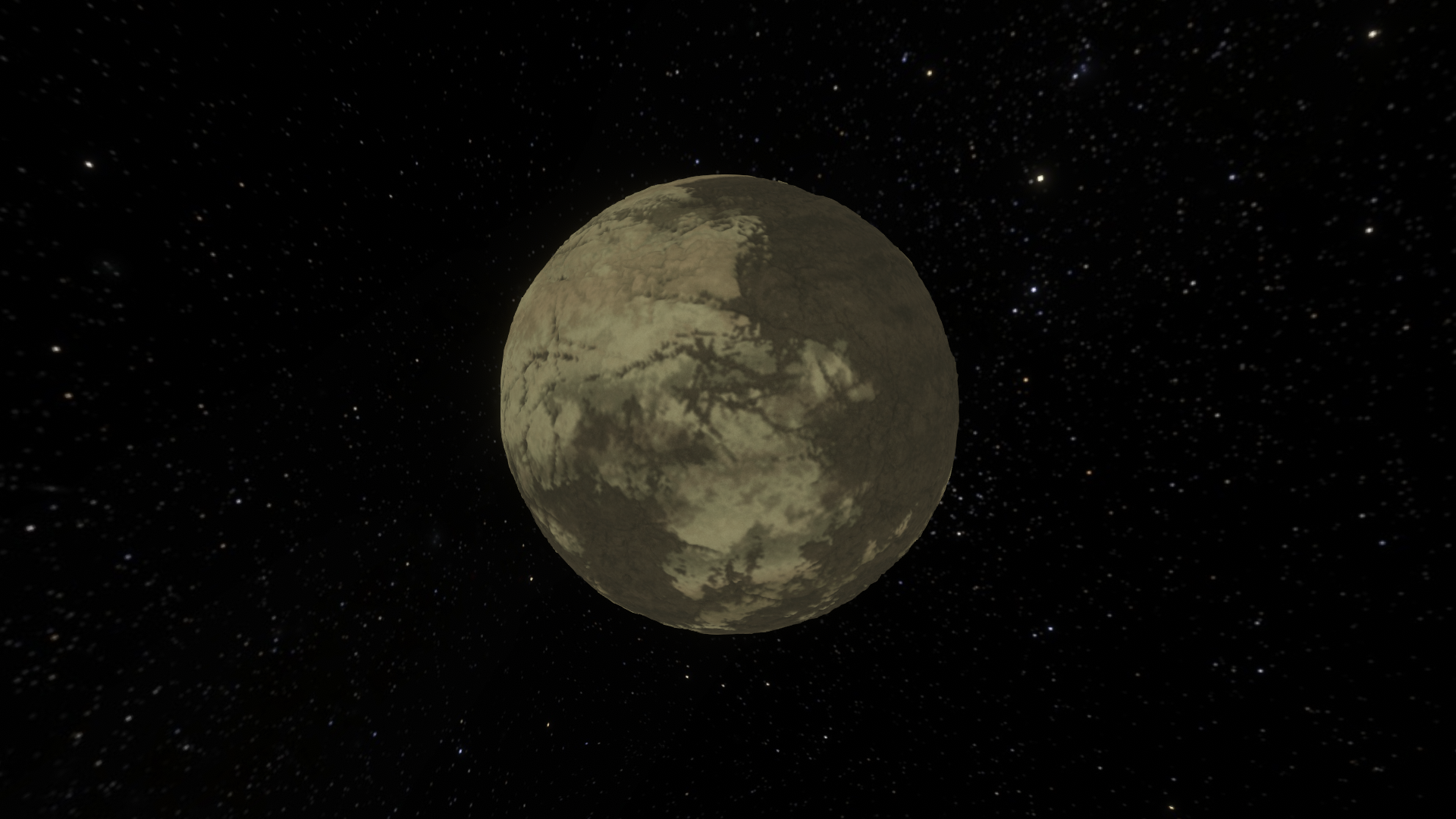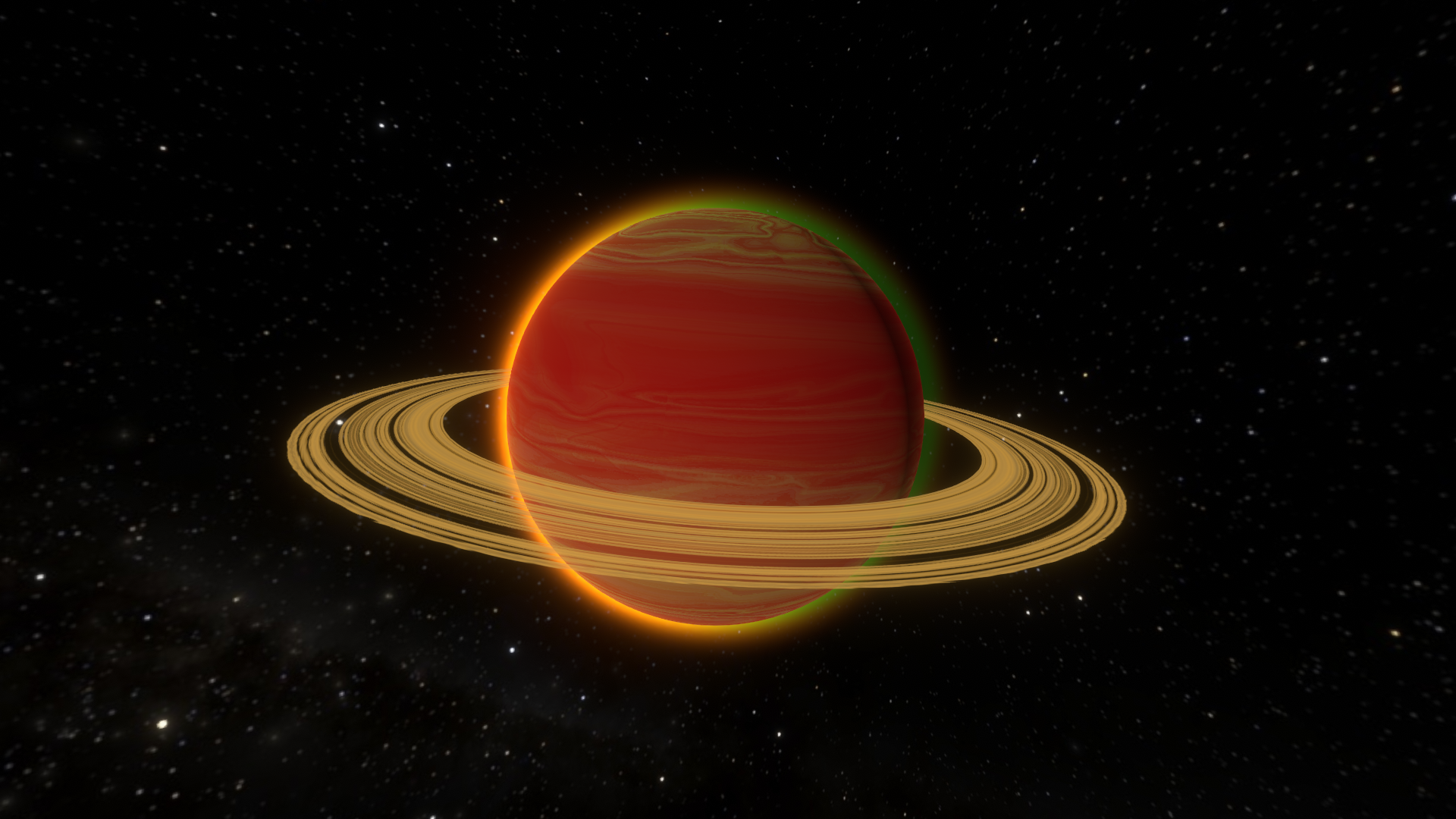Carson has a longer loading time than most other systems. Please be patient and just give it an extra minute or two.
 Welcome to Carson, a star system 2.4 lightyears away from the Sun. Shortly after Outer Wilds Ventures repurposed ancient Nomai warp technology to travel to other stars, Carson was at one point discovered and is currently being researched. The star is currently home to 8 planets and 6 moons.
Welcome to Carson, a star system 2.4 lightyears away from the Sun. Shortly after Outer Wilds Ventures repurposed ancient Nomai warp technology to travel to other stars, Carson was at one point discovered and is currently being researched. The star is currently home to 8 planets and 6 moons.
 Carson is a large yellow dwarf star about halfway through its life cycle. Instead of going supernova like most other stars, once it runs out of hydrogen, it'll begin to fuse the helium into heavier elements and the star will expand into a red giant, before eventually shrinking down into a white dwarf.
Carson is a large yellow dwarf star about halfway through its life cycle. Instead of going supernova like most other stars, once it runs out of hydrogen, it'll begin to fuse the helium into heavier elements and the star will expand into a red giant, before eventually shrinking down into a white dwarf.
Urath is a green, Hearth-like planet. It has beautiful oceans for all to see, and fathers a quaint little moon named Loon.

Loon is the quaint little moon hurtling around Urath. It is full of craters and riverbeds, some of which may have potentially had lava a long time ago.

Mirtha is a red, dusty planet. The atmosphere is rather thin, but it has the potential of being terraformed by melting the polar ice caps.

Ekbur is one of two moons that orbit Mirtha. It is a reddish-brown color and duels often with Graebur.

Graebur is the gray twin of Ekbur. It is a little smaller and much more varied, with deeper craters and taller mountains compared to Ekbur. The composition of its stone is heavily durable and holds interesting properties. This moon should be investigated more.

Dester is a desert planet. It has plenty of cacti to go around. Make sure to clean any sand out of the suit's oxygen filters.

Alpinia is an alpine planet, with fairly chilly temperatures and a beautiful ring. The oceans are dark and the grass is a dull shade, but it is pretty in its own right.

Volcus is a volcanic planet with thick clouds. It is also very hot, due to it being so close to the sun. Good luck surviving here.

Platinum Hue is a big gas giant. It has a pearlescent appearance, with the clouds containing mesmerizing pastel swirls in a beautiful sea of ivory. Nobody knows as of yet what lies beyond the enticing atmosphere, but it is highly recommended not to find out until further research is made.

Glaze is one of the moons from Platinum Hue. It is a frozen rock of ice with many canyons and valleys.

Draeo is another moon orbiting Platinum Hue. It is a very dry planet without any sort of atmosphere, but samples could prove useful for research.

Scarlet Storm is another big gas giant in the system. It has a more aggressive shade of color, with a large ring adding onto its frightening appearance. It is highly recommended not to explore it until further research is made.

Pyer is a cloudy moon that orbits Scarlet Storm. The atmosphere is composed of hydrogen cyanide. Take extreme caution when exploring.

A strange planet has appeared in the Carson system. Poylou appears to have high levels of radiation. It is unknown what is beneath the toxic clouds, but it is highly recommended not to find out until further research is made.
